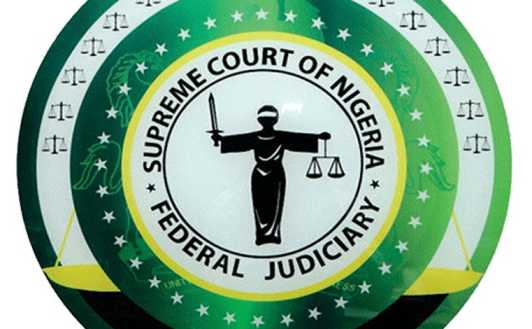

In the complex web of Nigeria’s legal system, the highest court holds a pivotal position, serving as the ultimate arbiter of justice and the guardian of the rule of law. Understanding the hierarchy of the Nigerian judiciary is crucial for citizens, legal practitioners, and anyone interested in the country’s legal landscape. In this blog post, we will delve into the heart of the Nigerian legal system to answer the question: What is the highest court in Nigeria?
What Is The Highest Court In Nigeria?


The Nigerian Judicial Hierarchy
Nigeria’s judicial system is structured in a hierarchical manner, with various courts playing distinct roles. The hierarchy can be broadly categorized into two arms: the superior courts and the inferior courts. The superior courts are at the apex of the hierarchy and have the authority to adjudicate on the most critical legal matters. Among these superior courts, one stands out as the highest, and that is the Supreme Court of Nigeria.
The Supreme Court of Nigeria
The Supreme Court of Nigeria is the Highest Court In Nigeria and holds the highest authority in the country’s judicial system. Established under the Nigerian Constitution, the Supreme Court serves as the final appellate court, which means its decisions are binding on all other courts in Nigeria. It is the court of last resort, and its rulings cannot be appealed further within the Nigerian judicial system.
Key Functions and Powers of the Supreme Court
- Interpreting the Constitution: One of the most crucial functions of the Supreme Court is interpreting the Nigerian Constitution. It has the authority to clarify and determine constitutional matters, ensuring that the constitution remains the supreme law of the land.
- Preserving the Rule of Law: The Supreme Court plays a pivotal role in upholding the rule of law in Nigeria. Its judgments set legal precedents that guide the lower courts and ensure uniformity in the application of the law.
- Reviewing Lower Court Decisions: The Supreme Court has the power to review and overturn decisions made by lower courts. Parties dissatisfied with the judgments of lower courts can appeal to the Supreme Court for a final determination.
- Advisory Role: The Supreme Court also has an advisory role to the President and state governors. When issues of national importance arise, they can seek the opinion of the Supreme Court on legal matters.
Composition of the Supreme Court
The Supreme Court is composed of justices who are appointed by the President of Nigeria upon the recommendation of the National Judicial Council and confirmation by the Senate. The Chief Justice of Nigeria leads the court and is the highest-ranking judicial officer in the country.
List of current Justices of the Supreme Court of Nigeria
The Supreme Court of Nigeria now has 13 justices, including the Chief Justice of Nigeria, following the deaths of Justice Nwali Sylvester Ngwuta, Justice Bode Rhodes-Vivour, Justice Samuel Oseji, Justice Mary Odili, Justice Ejembi Eko, and Justice Abdu Aboki, as well as the retirements of those justices and the resignation of Chief Justice Ibrahim Tanko Muhammad.
Current Justices Of the Supreme Court
- Olukayode Ariwoola
- Musa Datijo Muhammad
- Kudirat Kekere-Ekun
- Chima Centus Nweze
- Amina Augie
- Uwani Musa Abba Aji
- John Inyang Okoro
- Lawal Garba
- Helen M. Ogunwumiju
- I.N. M. Saulawa
- Adamu Jauro
- Tijjani Abubakar
- Emmanuel A. Agim
Conclusion
In summary, the Supreme Court of Nigeria is the highest court in the country and plays a critical role in upholding the rule of law, interpreting the constitution, and ensuring justice is served. Its decisions have far-reaching implications and set the legal precedent for all other courts in Nigeria. Understanding the position and functions of the Supreme Court is essential for anyone navigating the complex terrain of the Nigerian legal system.




